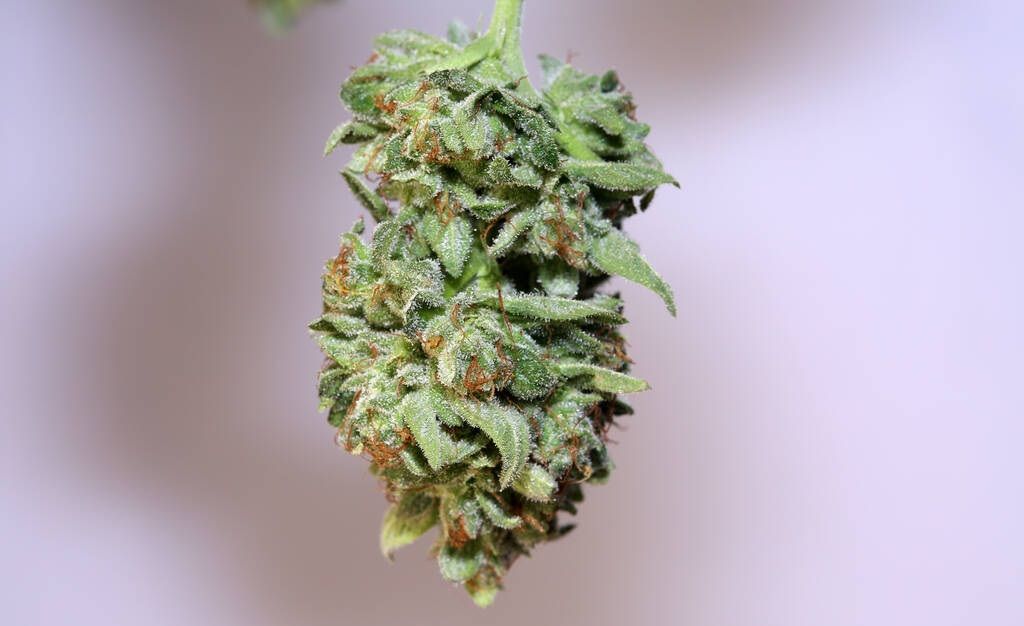Last year the Department of Health and Human Services (HHS) recommended to the DEA that marijuana be rescheduled. A lot has happened since then. Here’s a timeline.

Marijuana is currently a Schedule I drug, making it illegal under all circumstances. If marijuana were moved to Schedule III, as the HHS has recommended, it would be legalized nationwide for prescription use. The move would also bring forth a plethora of additional changes, including giving federal protections to state-level medical marijuana patients and businesses. This would be a far cry from legalization or a full deschedule, but it would one of the largest changes in federal marijuana laws since prohibition was established.
Below is a timeline of HHS’s recommendation, and the DEA’s current review.
HHS Recommendation
In late 2022, President Joe Biden issued an executive order directing HHS to review marijuana’s status as a Schedule I drug under the Controlled Substances Act, while giving a recommendation on whether it should be rescheduled. After a roughly year-long review, HHS sent a letter to the DEA in August requesting that they move marijuana to Schedule III.
Below is the timeline that follows:
September, 2023
On September 5, an official with the Biden Administration who asked to remain anonymous told us it’s their belief that marijuana will be moved to schedule III prior to the 2024 election.
On September 13 a report released by the Congressional Research Service (CRS) stated that it’s “likely” the DEA will reschedule marijuana to reschedule III, which will have “broad implications for federal policy”.
October, 2023
On October 27 a bipartisan group of 31 congressmembers sent a letter to the DEA urging them to consider fully descheduling marijuana, rather than simply reschedule. Descheduling marijuana would decriminalize the plant nationwide.
November, 2023
In November Senator Gillibrand sent a letter to the DEA requesting marijuana be rescheduled, while also declaring that she believes marijuana should be fully descheduled. Senator Gillibrand is Chair of the Subcommittee on Livestock, Marketing and Agriculture Security as well as Chair of the Subcommittee on Emerging Threats and Capabilities.
December, 2023
In early December HHS released an over 250 page document explaining their rationale for wanting the DEA to reschedule marijuana, with some of the information redacted. The following month the department released the fully unredacted document.
Over 150 of HHS’s 250+ page report were spent discussing marijuana’s potential medical value. The department argued that since marijuana does have known medical value, it should not be classified as a Schedule I drug.
On December 19 the DEA sent a letter to congressional lawmakers confirming that their review of marijuana as a Schedule I drug is currently underway, while noting that the agency has “the final authority” when it comes to any rescheduling effort.
“DEA has the final authority to schedule, reschedule, or deschedule a drug under the Controlled Substances Act, after considering the relevant statutory and regulatory criteria and HHS’s scientific and medical evaluation. DEA is now conducting its review”, said DEA Acting Chief of the Office of Congressional Affairs Michael Miller.
January, 2024
On January 12, Colorado Attorney General Phil Weiser led a group of 12 state attorneys general on a letter encouraging the DEA to reschedule in the interest of public health and safety.
On January 15 the secretary HHS confirmed, for the first time, that their agency has recommended to the DEA that marijuana be rescheduled to Schedule III, while confirming they are in continuing talks on the issue.
On January 25 an official with the DEA requesting to remain anonymous told us that the agency is “on track for rescheduling to happen before the end of summer. Most likely in August.”
On January 29 US Senator Kirsten Gillibrand and Congressmember Jerrold Nadler joined numerous New York lawmakers and marijuana reform activists to call on the Attorney General and the Drug Enforcement Administration (DEA) to deschedule marijuana.
February, 2024
On February 6 attorney Adrian Snead, a partner at firm Porter Wright Morris & Arthur LLP who previous worked for Senator Jeff Merkley (D), said that an announcement regarding the DEA’s decision could come within a matter of days.
“Big #cannabis announcement is coming from the Administration this week”, Snead said in a post on LinkedIn. “A highly placed Administration source confirmed that there will be a big announcement regarding cannabis likely this week.”
On February 8 Congressmember Earl Bluemauer (D-OR), co-chair of the Congressional Cannabis Caucus, sent a letter to DEA Administrator Anne Milgram requesting answers to several poignant questions regarding the agency’s review of marijuana as a Schedule I dug.
On February 19 a report released by the FDA says that when they were conducting their review of marijuana as a schedule I drug, the agency not only examined a plethora of scientific research, they had a team of researchers who spent months analyzing thousands of posts on various social media platforms, many of which were marijuana consumers putting forth anecdotal evidence of its therapeutic and medical benefits.
On February 26 Congresswoman Sydney Kamlager-Dove (CA-37) sent a letter to the Drug Enforcement Administration (DEA) urging them to reject any argument in support of maintaining marijuana in Schedule I or Schedule II based on U.S. Treaty obligations.
March, 2024
On March 7 President Biden became the first president in US history to promote marijuana law reform during a State of the Union address. Biden mentioned “directing my Cabinet to review the federal classification of marijuana, and expunging thousands of convictions for mere possession, because no one should be jailed for using or possessing marijuana.”
According to a March 9 report by the Wall Street Journal, some top DEA officials are disputing HHS’s scientific analysis of marijuana and are at odds with other members of the Biden Administration.
On March 16 Vice President Kamala Harris said the federal government should reschedule marijuana “as quickly as possible”.
On March 27 a group of Republican senators, led by Senator Mitt Romney, urged the DEA to reject requests to reschedule marijuana.
Also in March, an official with the DEA said that when it comes to marijuana’s scheduling status, the agency is “in the process” of writing a recommendation, clarifying that Administrator Anne Milgram “will make a decision on where to place it – whether to change it or whether to remove it”.
April, 2024
On April 11 during a committee hearing in the United States House of Representatives, Food and Drug Administration (FDA) Commissioner Robert Califf said “there’s no reason for the DEA to delay” a decision regarding marijuana’s scheduling status.
On April 15, White House Press Secretary Karine Jean-Pierre said today that the Department of Health and Human Services’ (HHS) recommendation to the DEA to reschedule marijuana was “guided by the evidence”, while clarifying that the Justice Department now has the final say on the matter.
On April 25 a bicameral coalition of lawmakers sent a letter to the Drug Enforcement Administration (DEA) urging them to “promptly remove marijuana from Schedule I”.
What Comes Next?
As has been the case for months, there is no specific timeline or date for when the DEA will come to a decision on whether or not to reschedule marijuana. Signs point to an announcement coming in a matter of weeks or months, with an actual law change occurring prior to the 2024 election.
That said, until there’s an official announcement from the DEA, HHS or President Biden, nothing is certain or can be taken for granted.








